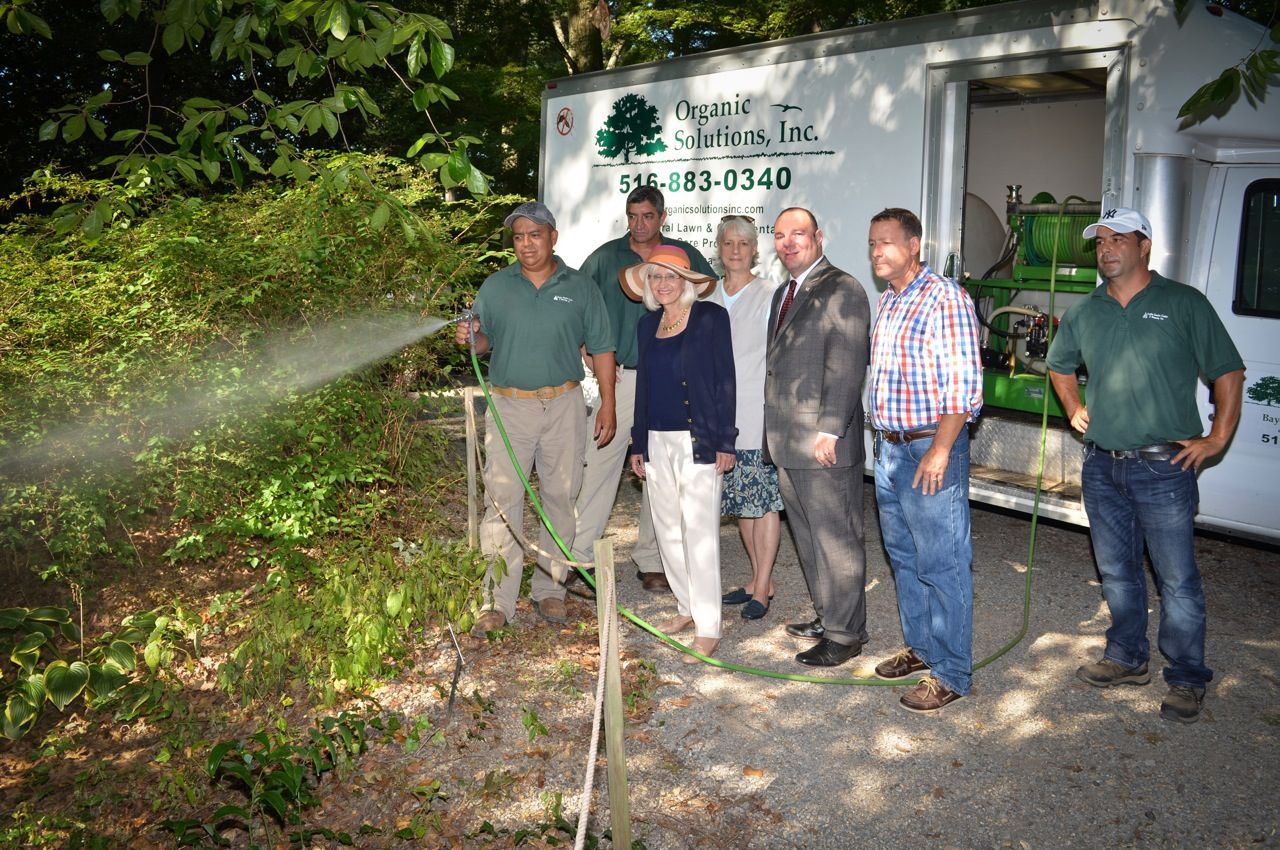Town of North Hempstead Supervisor Judi Bosworth and Town Councilman Peter Zuckerman (D-2nd District) announced last Thursday a plan to reduce the number of pests that occupy Harbor Hills Park in Great Neck and Clark Botanic Garden in Roslyn Heights.
The town will partner with Port Washington-based company Organic Solutions Inc. to provide safe, natural solutions for mosquitoes and other pests, according to a Town of North Hempstead release.
“It is critical that we use organic solutions while treating our plant life and reducing the pest population in our parks,” Bosworth said. “Both the town and Organic Solutions recognize the problem with using harmful synthetic chemicals often utilized to eliminate the problem of pesky insects, and how such chemicals can negatively impact both the environment and our groundwater.”
The plan is intended to reduce the number of pests that occupy the two parks as well as increase the level of comfort for residents who visit the areas, according to the release.
“The town’s residents can rest easy knowing their children and pets can be both pest free and safe from the adverse effects of synthetic chemicals,” Zuckerman said.
The town will use Organic Solutions’ natural spray program, which is designed to use pesticides that are safe for both humans and animals, the release said.
Synthetic chemicals that are used in fertilizers, insecticides, fungicides, and weed controls can find their way into the water supply and cause significant damage, Organic Solutions said in the release.
“The Town of North Hempstead and Supervisor Bosworth have done exactly the right thing by choosing this safe, sustainable and non-toxic solution to a common problem for ponds and marshes. Typically, these problems are remediated using chemical pesticides, which are not species-specific and result in rebounds of insect populations that are more resistant to the chemicals,” said Patti Wood, executive director of Grassroots Environmental Education and a member of the town’s Ecological Commission.
“They also remain in the environment for long periods of time and adversely impact many non-target populations, including people. Hopefully, other municipalities will follow the example set by this Supervisor and her well educated and thoughtful staff.”



